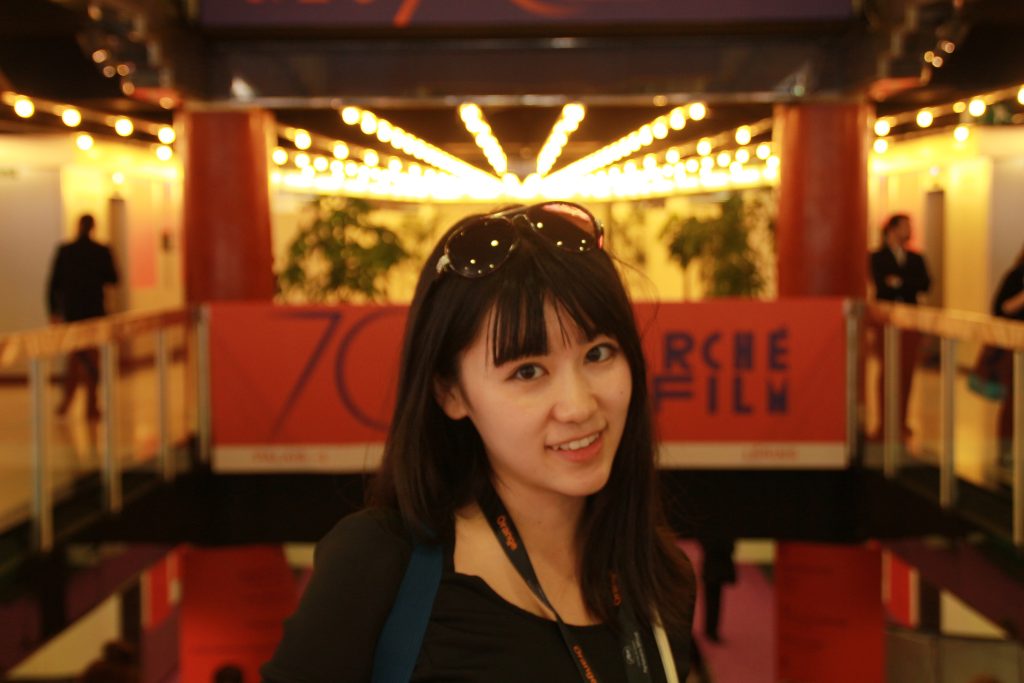Maisemantutkimuksen väitöskirjatutkija esittelee tutkimustaan

My doctoral journey was accompanied by the turbulence and transformation of the world order, which seemed to be a harbinger, leaving a footnote for my research.
In the fall of 2019, I arrived in Pori. My previous two years of master’s study in Sweden had allowed me to adapt to the life in Nordic region, but the following months made me realize the immense difference between doctoral and master’s studies.
In the initial months, the changes in life magnified the sense of bewilderment in my research, and this nomadic sense triggered a cultural nostalgia, lasting until the end of 2019 when I returned to China.
Soon after, Covid-19 broke out in Wuhan, China. In retrospect, it is somewhat difficult to imagine, but China suddenly entered what Agamben referred to as the ”state of exception” – all production activities came to a halt, hospitals faced resource shortages, people were dying, bodies piled up in hospital corridors, some impersonated staff wearing protective gear to rob people, while some others were stranded on highways due to city lockdowns.
With flights constantly being canceled, I was trapped in China for 11 months. This period made me gradually realize that our orderly everyday life is not as stable as it seems. The uncertainty of the world always keeps haunting us. The images, visuals, and things that can be represented and articulated are not sufficient to expose the crises lurking behind.
It was during this time that I gradually became interested in Lacanian psychoanalysis and tried to incorporate this theoretical framework into my own research.
My initial interest in Arctic landscapes stemmed from countless literary and artistic works that described the Arctic in similar ways – glaciers, snowfields, polar bears, extreme and terrifying weather, mysterious and secretive scientific research…
However, I realized that it was precisely the unfamiliarity and ignorance about the Arctic that had given rise to this series of fantasies. I was not only curious about what the ”authentic” Arctic looked like, but also about what made people imagine the Arctic in such ways.
Therefore, my first article began by examining images, exploring how a particular scopic regime enabled people to associate Arctic landscape images with specific ideologies.
As my research deepened, I gradually realized that the so-called ”Arctic” was not a coherent, inherent geographical concept. There are significant differences and discontinuities among different countries and regions in the Arctic, which even outweigh their geopolitical and climatic commonalities.
With the discovery of new sea routes, as well as the process of globalization, these differences gradually surfaced, constantly fluctuating in the spatial configuration of the North.
W.J.T. Mitchell has built a theoretical model of space-place-landscape and compared it with Lacan’s three orders (imaginary-symbolic-real). Based on this, I began to explore the feasibility of using a psychoanalytic framework to understand spatial research. I faintly sensed that Lacan’s concept of the Real was a key in understanding the uneven development between regions.
This also implies that the geographical concept of ”Arctic” is a socially constructed concept, accompanied by alienations of this region. Interestingly, the construction of the concept “Arctic”, due to various reasons such as culture, geopolitics, and social structure, has produced vastly different effects and impacts among Arctic and non-Arctic countries. For example, some countries regard the Arctic as an integral part of their national identity, while some others view their Arctic territories as exotic tourist destinations. This diversity requires us to transcend the constraints of the concept and understand it within the context of in-depth case studies.
Based on the appropriation of Lacan’s three orders, my first article is a theoretical introduction, interpreting the theoretical framework through the concept of anti-landscape. The other three articles correspond respectively to the domination of the Imaginary (landscapes, images, and illusions of locality) by the Symbolic (symbols, laws, concepts, ideologies, etc.), the impact of the Symbolic on the Real (materiality, experiences of locality, interactions between subjects and objects, etc.), and the interaction between the Real and the Imaginary.
I hope to provide a more concrete explanation of the theory through the unique geographical region of the Arctic and offer a diverse research perspective for landscape studies through this theoretical framework.
In summary, my research project is an ambitious endeavor that aims to analyze and draw siginificant conclusions of various media forms and cultural contexts. I hope I can confidently face the challenge I have set for myself!

Chenru Xue
The author is a doctoral researcher at Landscape Studies, Degree Programme in Digital Culture, Landscape and Cultural Heritage, University of Turku.
Viimeisimmät kommentit